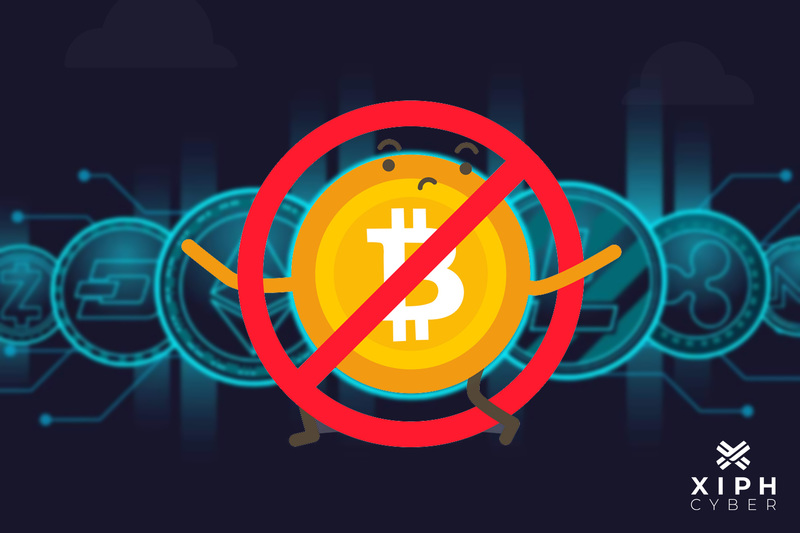Published Jul 05, 2023 by Xiph
Banks are slowly banning decentralised cryptocurrencies – is it to protect customers from scam risks or to make way for their own centralised digital currencies?
Are banks banning crypto?
Some of Australia’s big banks are restricting crypto transactions. Notably, the Commonwealth Bank of Australia (CBA) has placed an outright ban on crypto payments to some exchanges and will withhold certain payments to cryptocurrency wallets for up to 24 hours. The bank also imposed monthly limits of $10,000 on crypto exchanges per month. In a similar move, Westpac banned deposits to the world's largest crypto exchange Binance. The official rationale behind the restrictions on crypto transactions is to limit losses from scams. The remaining big four banks may implement their own bans.
Crypto scams
Cryptocurrencies are the most common payment method in investment scams, according to the Australian Competition and Consumer Commission (ACCC). However, crypto fraud relies largely on social engineering, otherwise known as ‘human hacking’. This pertains to people’s risk perception and competence, meaning banking institutions should prioritise customer education over restriction. In the same way, just as many people get scammed with PayID and PayPal. Yet, banks haven’t banned or placed limitations on those forms of payment.
Curbing economic freedom
Crypto advocates and blockchain stakeholders say the restrictions on transactions to cryptocurrency exchanges curb economic freedom. In fact, many would agree people should be free to choose how they spend their money (within legality). The role of the banks is to facilitate those monetary transactions − not to arbitrate them unless there’s a substantial risk to customers or illegal activity. Even so, there’s a fine line between protecting customers’ interests and forbidding people from using digital exchanges that have a legitimate role to play in the financial ecosystem.
However, banking officials and even the International Monetary Fund (IMF) argue blockchain technologies are over-hyped and want to replace decentralised cryptocurrencies with central bank digital currencies (CBDCs) of their own design – these would be centralised and therefore not protect privacy and would even allow governments to monitor where and how we use our money. China already has a blanket ban on the use of private cryptocurrencies and instead developed its own digital currency, the digital yuan, or e-CNY. Other countries piloting CBDCs include India, Brazil, Japan, and Russia. Along the same lines, the European Union (EU) is currently exploring the idea of launching its own digital currency, the e-euro.
Can you buy crypto without a bank account?
Yes, you can buy crypto without a bank account. Most cryptocurrency exchanges allow you to purchase cryptocurrencies with other virtual coins, or you can find virtual wallets that accept prepaid card payments, cash deposits or other payment methods.
Keep in mind that banks can’t technically stop you from buying crypto with your money or savings, but they can block transactions to cryptocurrency wallets if they suspect any suspicious activity. You also can’t buy crypto with a credit card because virtual currencies are deemed too volatile.

Crypto crackdown in the U.S.
The U.S. banks don’t currently have restrictions on transactions to crypto exchanges from savings or deposit accounts but prohibit crypto purchases with credit cards. This could soon change as the country’s financial watchdog the Securities and Exchange Commission (SEC) launched legal action against Binance, accusing the cryptocurrency exchange of mishandling customer funds and lying to regulators and investors about its operations. SEC also later sued Coinbase for allegedly operating an unlicensed securities exchange, brokerage and clearing agency, and putting customers at risk in the process. The SEC appears hellbent on a wider crypto crackdown, prompted by the collapse of trading platform FTX.
Crypto regulation in the EU
Meanwhile, the EU introduced new crypto regulations under the Markets in Crypto Act (or MiCA). The new regulatory framework imposes several requirements on crypto platforms, token issuers and traders around transparency, but none on banks. Notably, crypto exchange platforms are required to inform customers about the risks associated with buying and selling virtual currencies, while tokens need a minimum reserve to meet redemption requests in the event of mass withdrawals.
Read more: Is crypto dead?
The beginning of the end for cryptocurrencies
The strength of crypto is decentralisation and it exists outside the control of central authorities. Furthermore, it’s not a legal tender which means it can’t be used for payments, settlements, and other financial transactions. There’s nothing to suggest it poses any systemic threat to financial markets. However, central banks around the world are advancing CBDCs and that will lead to stricter regulations on cryptocurrencies to prevent them from competing. Some governments may outright ban cryptocurrencies in favour of CBDCs.
A final word
Cryptocurrencies may need more regulatory clarity, but it’s the government’s job to oversee the implementation of these laws, not the banks’. What financial institutions can do is promote risk detention and educate customers on crypto scams and fraud. For more information, contact us via email: enquiries@xiphcyber.com.
Posted in: Security


